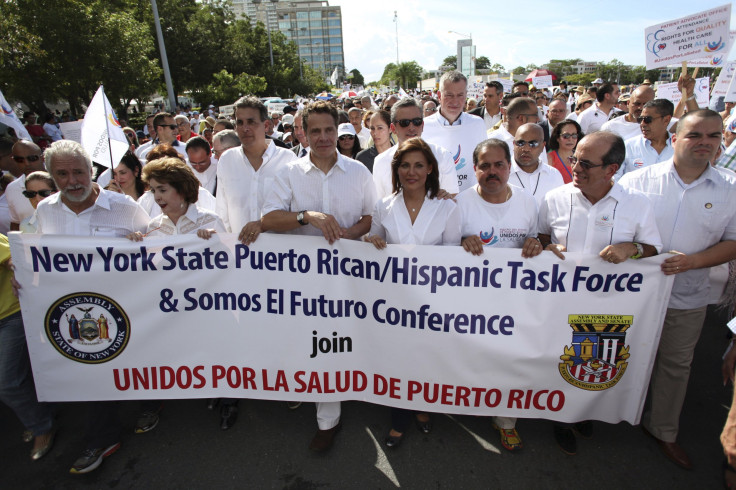Without Medicaid Funding Fix, Puerto Ricans Could Flock To US For Healthcare Treatment, Officials Warn

As Puerto Rico's debt crisis deepens, more of its residents could flock to the continental U.S. for healthcare, Pedro Pierluisi, Puerto Rico’s nonvoting representative in Congress, has warned, Bloomberg reported Monday. With about half of its residents, who are U.S. citizens, living in poverty, the commonwealth has a large proportion of people who rely on Medicaid, government health insurance for low-income people, yet it receives a lower percentage of federal funding for Medicaid than states that have lower rates of poverty.
Puerto Ricans could "hop on a plane and go to Florida, Texas and the Carolinas and get full Medicaid funding and other federal benefits,” Pierluisi said, and unless this disparity is evened out, the U.S. should expect to receive more and more Puerto Rican patients.
Puerto Rican officials partially blame the imbalance for the island's debt crisis, and the administration of U.S. President Barack Obama has proposed "a long-term solution to Puerto Rico's historically inadequate Medicaid treatment" that would "move toward a permanent and stable funding partnership that would alleviate some of the fiscal challenges and risks created by the current insufficient and unstable federal funding" for Medicaid.
The federal government covers about 57 percent of the costs of Medicaid in Puerto Rico, compared to 74 percent in Mississippi, the poorest state in the country, yet with a poverty rate half of Puerto Rico's and a population that's smaller by half a million people, Bloomberg reported. Others have pointed out, however, residents of Puerto Rico also don't pay federal income taxes.
Puerto Rico has about $72 billion in debt, which Governor Alejandro García Padilla said in June the island would be unable to pay. The commonwealth's economy was hit hard in 2006, when federal tax breaks for companies that manufactured goods there were phased out and many businesses left the island as a result.
It also has an aging population, especially as Puerto Ricans leave in search of better opportunities and jobs in the U.S. “In many ways Puerto Rico resembles the northern Rust Belt States in the mainland U.S.: A declining population and manufacturing base mean that it becomes increasingly harder to service existing debts as tax revenues dry up,” Paul Ashworth, chief U.S. economist at Capital Economics, said in a note in July, the Globe and Mail reported.
The disparity in Medicaid funding, coupled with the island's ongoing fiscal and economic crises, have led some to portend a third disaster: that of medical care. By the end of 2016, Medicaid, which covers 1.6 million people in Puerto Rico, or 45 percent of the island's population, could burn through a one-time federal grant of $6.4 billion given under the Affordable Care Act. The program also owes medical providers in Puerto Rico some $200 million, the New York Times reported in August.
As a result, some medical centers have shuttered parts of their facilities, and patients sometimes have to wait months to see specialists. Meanwhile, more than 3,000 doctors have left Puerto Rico in the past five years, seeking better-paying, more stable jobs elsewhere.
"The 3.5 million Americans in Puerto Rico do not have access to healthcare services considered standard in the rest of the nation," Antonio Weiss, counselor to the U.S. Secretary of the Treasury, told the Senate Committee on Energy and Natural Resources in a hearing in October. "The Commonwealth of Puerto Rico is in the midst of an economic and fiscal crisis, and, without federal action, the situation could become a humanitarian crisis as well," he added.
© Copyright IBTimes 2024. All rights reserved.






















